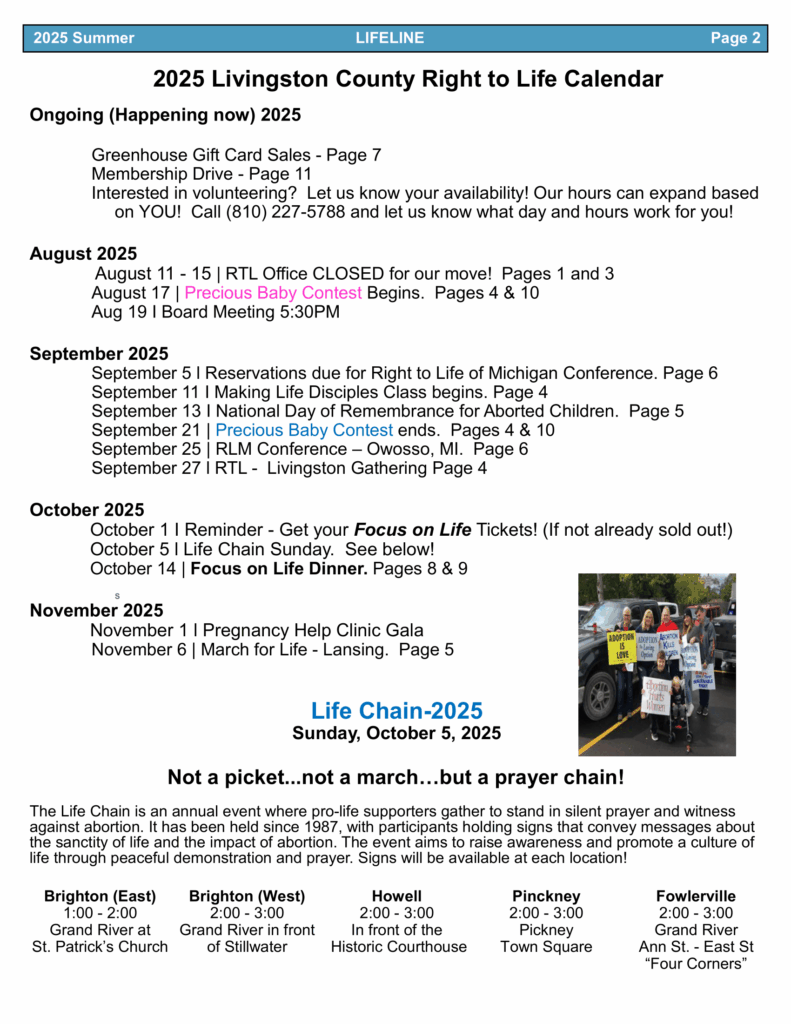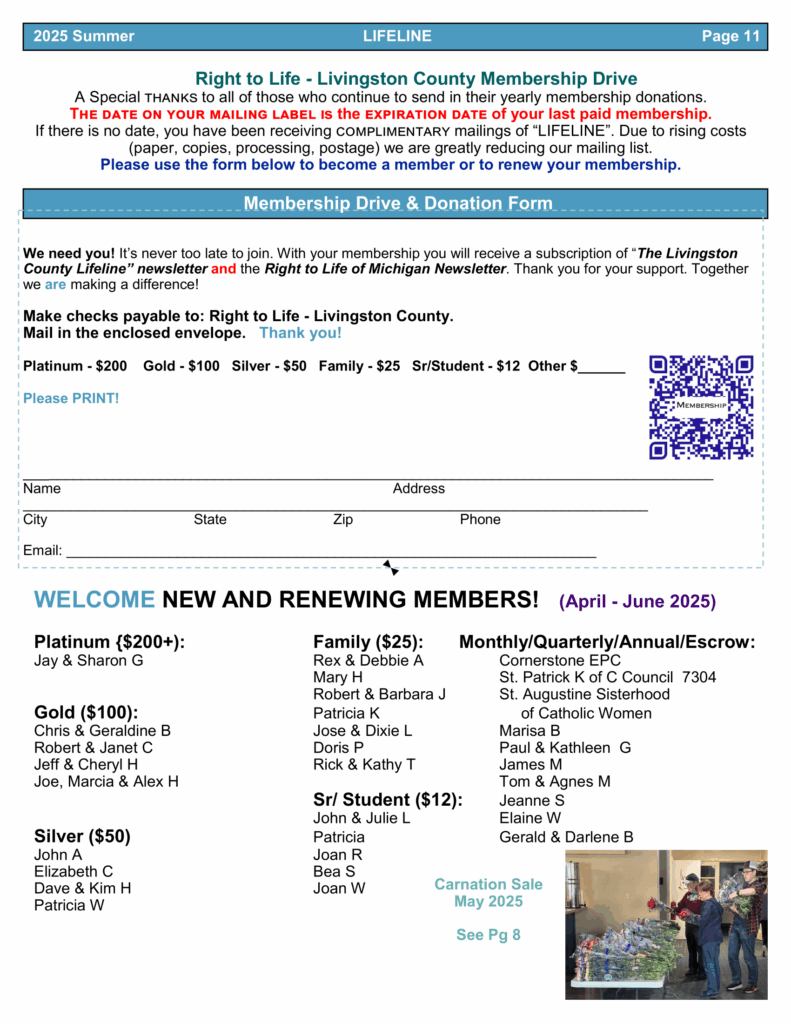Endorsement Criteria
How does Right to Life make endorsement decisions? This FAQ is taken from the Right to Life Michigan Endorsement page.
RLM-PAC endorsements are non-partisan, and based solely on RLM-PAC bylaws and the criteria listed below.
A candidate must be prolife with no exceptions other than life of the mother. A candidate must also complete a questionnaire based on the office the candidate is seeking.
The RLM-PAC believes that a previously-endorsed prolife incumbent running for re-election to the same seat—who has consistently stood up for the unborn despite possible retribution—deserves the unwavering support of the RLM-PAC, regardless of opponent. Therefore, the RLM-PAC will endorse the previously-endorsed prolife incumbent running for re-election, provided that incumbent has maintained an acceptable prolife voting record since their last election and successfully completed a current questionnaire.
When there is an “open seat” with no incumbent, the RLM-PAC will send candidate questionnaires to all major party candidates who file to run and offer a personal interview for possible endorsement.
Local PAC subcommittees—made up of prolife affiliate member volunteers who have completed training classes—conduct candidate interviews. Following RLM-PAC bylaws and criteria, the subcommittees make endorsement recommendations to the state PAC board.
Because local RLM affiliates are not PACs and are legally prohibited from making endorsements, the local committees make recommendations to the state PAC board, which makes the final endorsement decision.
The RLM-PAC endorses candidates in both major political parties, although not in all districts or races.
Voter preference and allegiance to a particular political party can be a factor in determining if the RLM-PAC will become involved in a particular district. Some districts are considered “safe” districts for either the Democratic or the Republican candidate. For example, if a political party makes up more than 60% of the voters in a particular district, then any other party’s candidate stands practically no chance of winning. It is very difficult in such districts to get voters to “cross-over” to vote for a candidate who represents that minority political party. Therefore, electability is taken into account when the local PAC subcommittees make recommendations for endorsements. The RLM-PAC must use its limited resources effectively in those areas in which it can possibly make a difference in the outcome.











